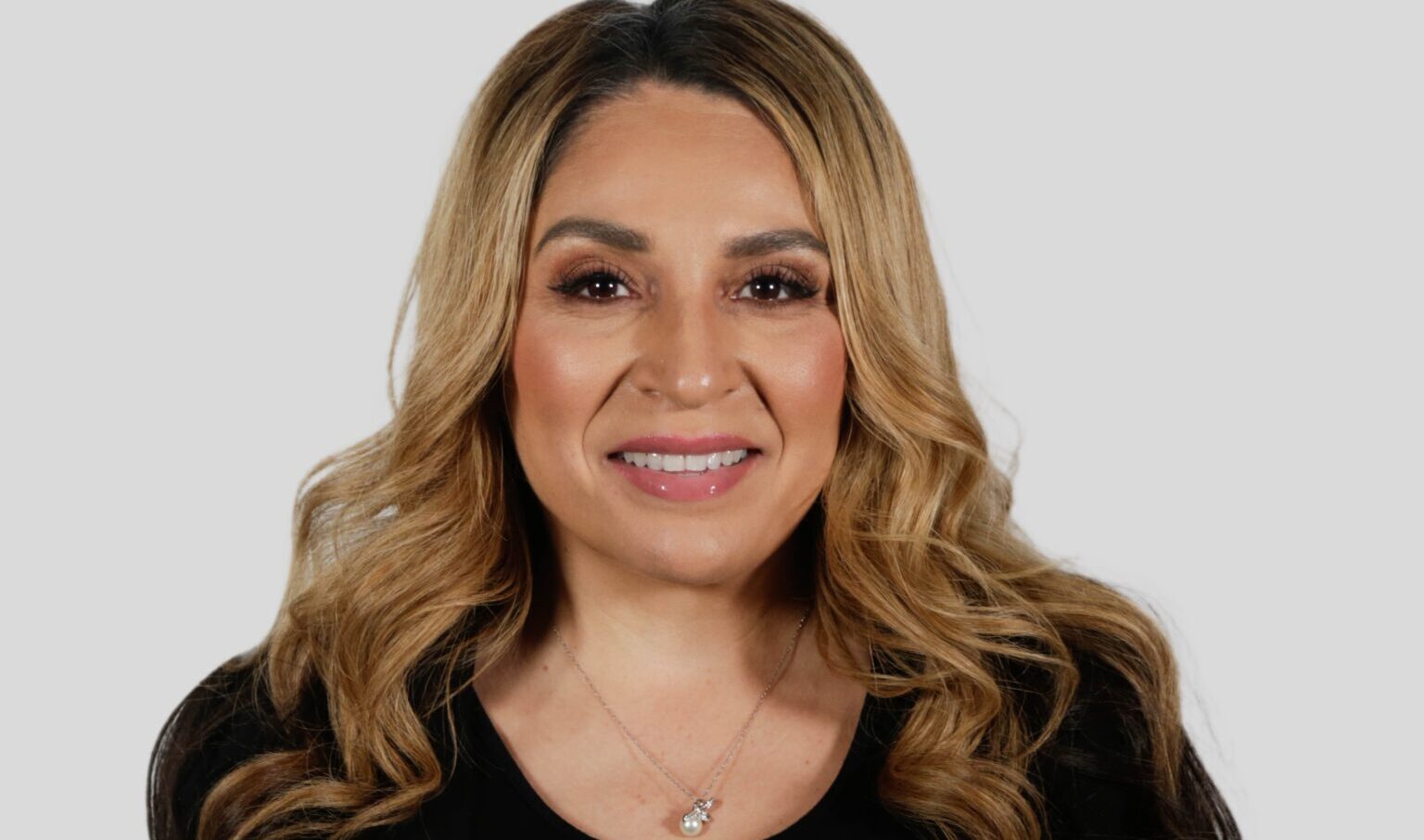
Heidi Vega shares how empathy and a “fail forward” mindset help her guide teams through their hardest days.
Heidi Vega, director of communications at the Arizona School Boards Association and president of the National School Public Relations Association, supports school board members, superintendents and 223 districts across the state. A proud product of public schools and a U.S. Air Force veteran, Vega first discovered her passion for communications while serving overseas in the public affairs department at Kunsan Air Base in Korea. There, at just 18, she learned to tell stories, take photos and write in AP style — tools she’s used ever since to help others feel seen and heard.
How has your military background influenced the way you lead communications today?
I want to feel like it’s come full circle, and I really do believe that if things are meant to be, they will be. When I got deployed to Korea, that was my first major international assignment. It was what they call a short tour—about a year long—and I was placed in the public affairs department.
I didn’t know what public affairs was at the time. It’s public relations, but I hadn’t thought of it that way. I started at the front desk in an administrative role and I learned everything from my colleagues. That’s where I first understood what AP format writing is. I also learned how to take photos and tell stories and I just felt like the work was calling me.
I was 18. I spent a year at Kunsan Air Force Base, and upon returning, I worked in various roles. I loved working with people, I loved marketing, but when I returned to a PR role in the school district, I had a moment. I realized, “Oh my gosh, this is public affairs,” just like what I was doing for the Department of Defense. It was meant to be for me.
In your communications work now, especially with so many different audiences—board members, superintendents, stakeholders—how do you tailor messaging without losing your voice?
It comes down to understanding and listening to your audience. Almost everyone—99.9% of people—can connect with something in public education. We’ve all had experiences, good or bad. Maybe it was a teacher, or a counselor—I remember one who told me I wouldn’t be able to go to college because of my grades and I’d only seen her twice.
When someone shares their experience, people connect. That’s what matters. And for me, it’s about being authentic. My authentic self includes all the things that make me me. When I present around the country, I try to engage people in a way that feels personal.
For example, when I talk about effective leadership, I ask people to think of someone who made a difference in their life—maybe a pastor or a teacher. Then I show a video of Selena Quintanilla dancing. I make everyone get up and learn the washing machine. It gets people laughing and moving—but more importantly, it connects to a deeper story. I tell them how, at 12 years old, seeing Selena in her purple outfit on TV made me feel seen for the first time. She looked like me, spoke English and Spanish, and she was doing it all.
What’s your favorite way to recharge or get inspired when you’re not working?
I just finished reading “Let Them” by Mel Robbins, and it was life-changing. I don’t say that lightly— “Becoming” by Michelle Obama was another one that stuck with me.
In the book, Robbins talks about doing something for yourself that you enjoy. And that hit me, because I think a lot of women—and people in general—struggle with that. We have this inner saboteur. For me, it’s the judge in my head saying, “You’re not working out hard enough,” or “You should be getting up at 5 a.m. to lift weights.”
Eventually, I realized I didn’t want to do things out of fear of what might happen if I didn’t. I wanted to do something good for my body, my health and my spirit. That’s when I started doing hot yoga.
I’m a fast thinker. My team even jokes that they can read my mind because I speak so quickly—“presentation,” “template”—they just finish my sentences. Hot yoga became a way to manage my inner critic to be intentional and grounded. And that’s hard, especially for moms and for women in general. But it’s become something just for me.
Is there a lesson from early in your career that still sticks with you today?
Yes. When I was new to school PR, I was working in a district where crises happened daily—student suicides, violent incidents, even tragic accidents. One time, a student choked on a hot dog and passed away and I had to translate that heartbreaking news to the family. It’s heavy, and people don’t always realize that this is part of what we do in school communications.
During one of those intense moments, a principal I worked closely with—who’s now one of my best friends and a mentor—offered me advice I still carry. I remember saying, “I just don’t want to fail.” And she said, “It’s okay to fail. You have to give yourself permission to fail—but always fail forward.”
It’s been at least 15 or 16 years since she first said it, and I’ve passed it on to my team and even to my stepdaughter. I tell them: give yourself permission to fail. I’m not expecting perfection. Courageous leadership means getting up and moving forward after a stumble.
What advice would you give someone early in their communications career who wants to make an impact in education?
Invest in yourself. Don’t just work to work. Pursue professional development—it’ll make you better at your craft. Someone once told me, “You can’t be the best at everything.” And that stuck with me.
Growing up, I was always trying to be the best—racing the boys in my neighborhood, trying to be my cousin’s “best cousin” when her family visited from California. I carried that mentality into adulthood. But I had to learn that it’s not about being the best at everything—it’s about being excellent at what you do. That’s what sets you apart.
Is there anything you’re proud of right now in your work that you’d like to share?
Yes! We just received national recognition from the National School Public Relations Association for our organization’s rebrand. It’s called the Gold Medallion Award, and only 13 entries were selected from about 77 nationwide. This is the third time in my 22-year career that I’ve submitted for this award, and I was in shock when we won.
It felt incredibly special to share that win not only with my team but also with my mom, husband and stepdaughter. We’ll be receiving the award at the NSPRA conference in D.C. soon. It was such a full-circle moment, especially as I wrap up my term as the first Latina president of our national association. I feel honored and humbled.
Isis Simpson-Mersha is a conference producer/ reporter for Ragan. Follow her on LinkedIn.
The post NSPRA President Heidi Vega on courageous leadership in times of crisis appeared first on PR Daily.















